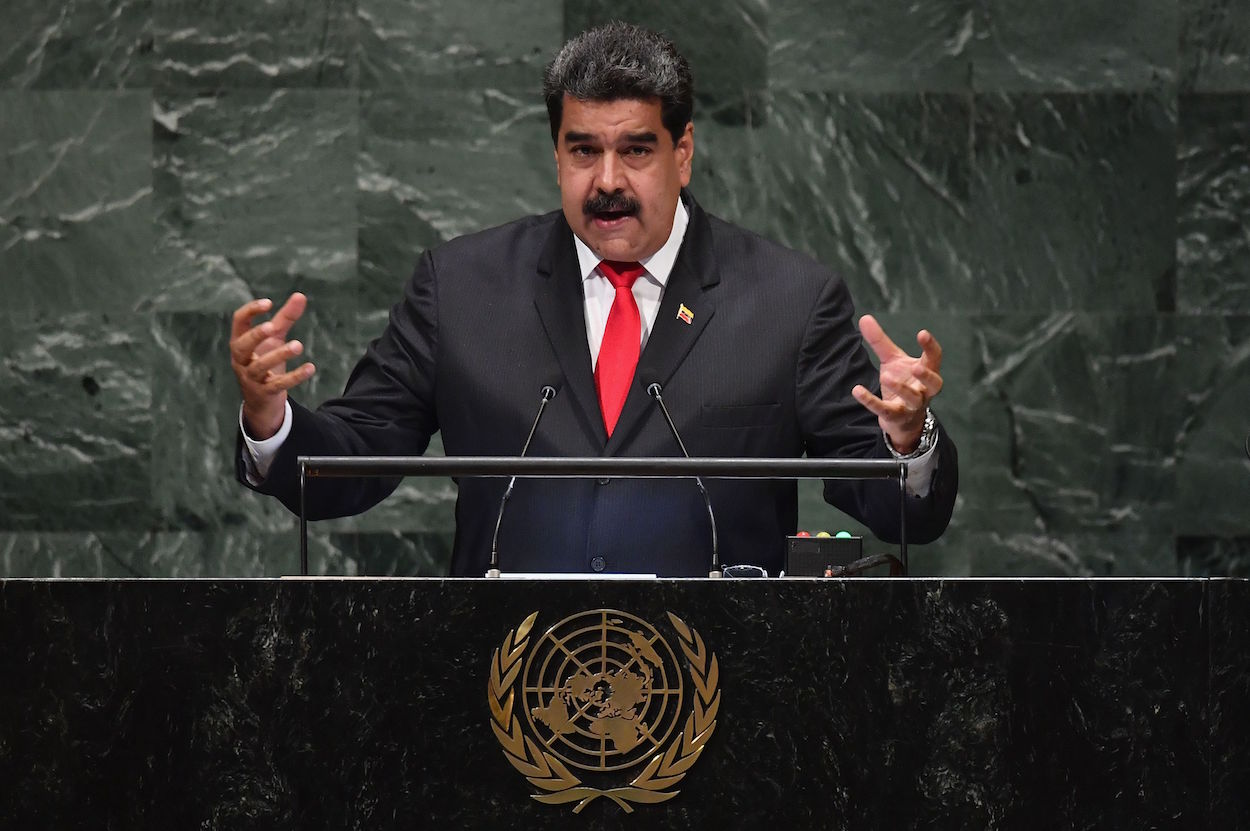Multilateralism is under attack, and the United Nations Human Rights Council is one body that is frequently criticized for not living up to either its name or mandate. Having states that commit serial human rights abuses elected to the 47-member Council—and there are several—certainly weakens the Council. Despite the bad press, however, the Council remains an effective venue and voice for accountability for the most pressing human rights crises.
The October 17 election of Venezuela to the Council has brought to the fore the travesty of having a government that is currently the worst offender in its region gaining a three-year term on the Council. Yet the country won by a slim margin, notwithstanding the fact that it campaigned for three years, leveraging its chairmanship of the 125-member strong Non-Aligned Movement for all its worth. It was guaranteed, alongside Brazil, one of the two vacant seats for the Latin American and Caribbean region until Costa Rica valiantly stepped into the fray, 14 days before the election, in a belated high-wire act to defeat the Maduro regime.
What many observers of the Council may not realize is how close Costa Rica came to defeating Venezuela. Had it enjoyed the full support of the Lima Group—11 states from the region that no longer recognize the Maduro regime—Costa Rica was well within reach of gaining sufficient support to unseat Venezuela. But Brazil delayed and opposed Lima Group statements of support for Costa Rica. Just two days before the election, for example, Brazil opposed one such statement at the Third Committee of the General Assembly, despite assurances by Foreign Minister Ernesto Araújo, whom I and a larger Human Rights Watch delegation met that very same day to discuss this matter, that Brazil stood with Costa Rica. Brazil enabled Venezuela’s election all along, first through its insistence that there should be a clean slate– thus guaranteeing Brasilia and Caracas a seat at the Council– then by it undermining support for Costa Rica.
Notwithstanding its election, however, it’s unlikely Venezuela will escape the scrutiny of the Council which mandated a fact-finding mission on September 27 to investigate the extrajudicial executions, enforced disappearances, arbitrary arrests, torture and other abuses committed by the Maduro regime. The resolution creating this mission was passed despite tactical concessions Caracas gave to the Office of the High Commissioner for Human Rights in a semblance of openness to avoid added scrutiny. These concessions, albeit insufficient, nevertheless committed Venezuela to fully implementing the recommendations contained in a damning July 2019 report by High Commissioner Michele Bachelet and to provide her office access to all regions and detention centers.
The Council has also called for international scrutiny and accountability mechanisms to address other serious human rights situations. These includes the crimes against humanity and abuses committed by the army clearance campaigns against the Rohingya minority in Myanmar and the war crimes and other abuses committed by the Saudi-led coalition and the Houthis in Yemen. It has also established inquiry commissions into situations as different as North Korea, Burundi and Syria, all of which have produced actionable reports that have, at least in the case of Syria, led to the establishment of a novel quasi-prosecutorial mechanism by the General Assembly.
Serial abusers are interested in gaining a seat on the Council precisely because it is an effective body. They seek to sit there in sufficient numbers to weaken its reach and scrutiny. This calls for rights-respecting democracies to challenge their claims to a seat, as Costa Rica did with Venezuela, to ensure that states that are committed to safeguarding the integrity of the Council continue to hold a majority. When Russia lost its bid to join the Council in 2016, it was a reminder that even powerful serial abusers can be defeated and denied the opportunity to further undermine the Council. Now that Venezuela has indicated that it will seek a second three-year term in the 2022 elections, the Lima Group and others should waste no time in denying the Maduro regime an uncontested election and unseating it.
—
Stagno Ugarte is the deputy executive director for advocacy at Human Rights Watch. He previously was the executive director of Security Council Report from 2011-2014. Stagno also served as Costa Rica’s foreign minister, ambassador to the United Nations, and chief of staff of the foreign ministry.






